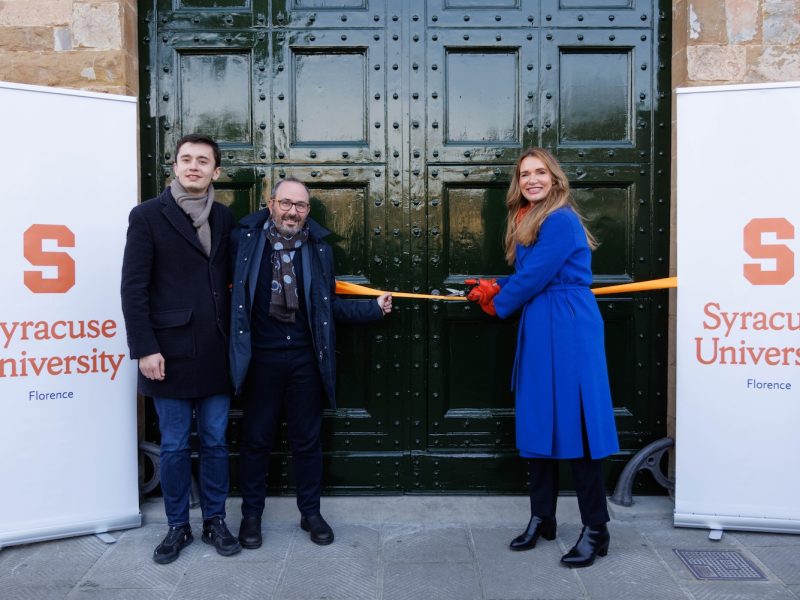How the Orange Will Be Represented in Women’s Ice Hockey at the 2026 Olympics
Coach Britni Smith, video coach Melissa Piacentini '16 and defender Akane Hosoyamada '15 will compete in Italy.
Featured Media
Syracuse Views Spring 2026
The latest views from every corner of Syracuse University's vibrant campus community.
Expert Tips to Make Your New Year’s Resolution Stick
Social work Professor of Practice Tracey Musarra Marchese explains how small steps, support and self-compassion turn ambitious resolutions into lasting habits.
Multidisciplinary Group of Faculty Examines Disease ‘From Cells to Society’
Researchers from diverse disciplines are collaborating to advance the understanding of Alzheimer's and other neurodegenerative diseases.
Students From Shaw Center’s Nutrition Initiative Make Learning Fun
Falk College students teach nutrition and cooking through hands‑on lessons that empower Syracuse schoolchildren to embrace healthy eating and lifelong food habits.
The Science of Black Holes: Secrets of the Cosmos
Eric Coughlin's groundbreaking research explores the feeding habits of super-massive black holes using a predictive model forecasting when a star will be shredded.
Upcoming Events
View All Events
Social Activities

Social Activities
Drumlins Centennial Celebration: Hot Cocoa and Cozy Giveaways
Club and Intramural Sports
Club Men's Ice Hockey vs. Stony Brook University
Social Activities
Bird Library Book Matchmaking Display
Workshops
LaunchPad Workshop: Alumni Insights
Syracuse University in the News
View All-
Beyond the Politics and Protests, Super Bowl LX Security Gears Up
Corri Zoli, senior research associate in the Maxwell School, says Super Bowl security is a large public-safety effort that requires close coordination between federal and local agencies.
-
Last Call for the Landline. The Wired Communication World Will Soon Be No More
Robert Thompson, Trustee Professor in the Newhouse School, reflects on the history of the telephone in popular culture and how it served as a narrative device creating dramatic tension in storytelling.
-
Why AI’s Legal Wins Create Leverage for Journalists
Nina Brown, associate professor in the Newhouse School, says that courts say AI can learn from news under fair use, giving journalists leverage to demand payment for fresh content.
-
Netflix Merger Raises Theatrical Release Antitrust Fears
Shubha Ghosh, Crandall Melvin Professor of Law in the College of Law, compares the Netflix-Warner Bros. deal to the Department of Justice's failed AT&T-Time Warner challenge and expects similar dynamics with possible divestitures.
-
Trump Threatened to Invoke the Insurrection Act (Again). What Is It?
William Banks, professor emeritus in the College of Law and Maxwell School, explains the history and legal uses of the Insurrection Act.
-
Beyond the Game: Esports Opens College Doors for CNY Students
The University's esports program is inspiring central New York high school students to pursue competitive gaming as a viable pathway to college scholarships and careers.














